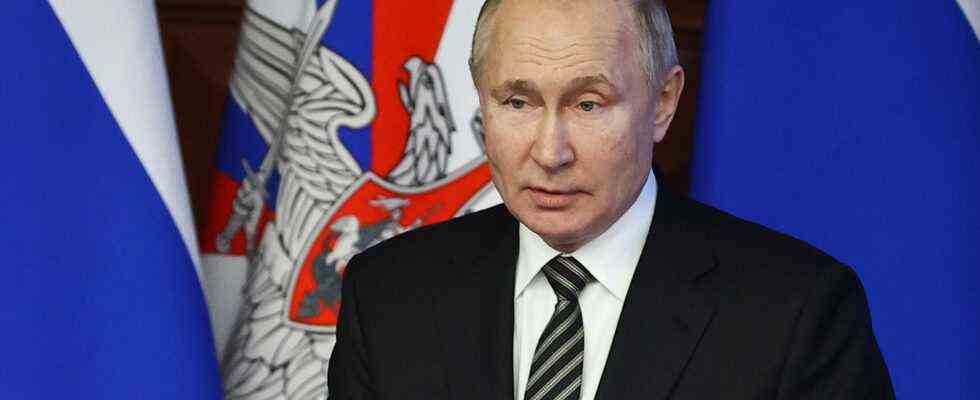Status: December 21, 2021 3:57 p.m.
Russian President Putin has placed full responsibility for the tensions in the Ukraine conflict on the West. He also repeated his call for a refusal to expand NATO to the east.
In a speech at a meeting with senior military officials, Russia has accused President Vladimir Putin of the US and NATO of being responsible for “tensions building up in Europe”.
The United States saw itself as the winner of the Cold War and, in its euphoria, had made wrong political decisions, he said. He was referring to the eastward expansion of NATO and the end of arms control agreements.
Russia had been forced to answer step by step. The situation got worse and worse. “And here we are today, in a situation where we are forced to somehow resolve it.”
Growing tensions on the border
Russia had previously requested in draft security agreements with the US and NATO that the Western military alliance not accept Ukraine and other former Soviet republics, withdraw weapons from the region and end maneuvers there. The demands came at a time of growing tensions over Russian troop build-up near the border with Ukraine, fueling fears of a possible Russian invasion of the neighboring country.
Putin said today that if US and NATO missile systems were installed in Ukraine, it would only be minutes before missiles could reach Moscow. “For us this is the most serious challenge – a challenge to our security,” said Putin, adding that this is why the Kremlin needs “long-term, legally binding” guarantees from the West, as opposed to “oral assurances, words and promises” that Moscow could not trust. At the same time, Putin stressed that he hoped for constructive talks with representatives from Washington and Brussels.
Stoltenberg sees a groundless military build-up
NATO Secretary General Jens Stoltenberg said the alliance would like to express its concern about Russia’s behavior in early talks. Russia continues to pull troops together on the border with Ukraine: “We are seeing that they are gradually bringing more and more armed forces – artillery, combat troops, battle tanks – near the Ukrainian border.”
Despite international demands for transparency and de-escalation, the “groundless and unexplained” military build-up continues. In order to discuss the tense situation, Stoltenberg announced that he would like to convene a meeting of the NATO-Russia Council at the beginning of next year.
Is Russia ready for new consultations?
At first, however, it remained unclear whether Moscow was even ready for new consultations in the dialogue format. The last talks in the NATO-Russia Council so far took place in July 2019. Since then, all attempts to set a date for a meeting have failed. One reason is that Russia actually no longer wants to talk about the Ukraine conflict in this format, which, in turn, eastern NATO countries in particular do not want to accept as a condition for new talks.
Russia’s relations with the United States had been thrown back to Cold War levels when Russia annexed Crimea in 2014 and supported a separatist uprising in eastern Ukraine. Tensions flared up again in recent weeks with the stationing of Russian soldiers near the Ukrainian border.

